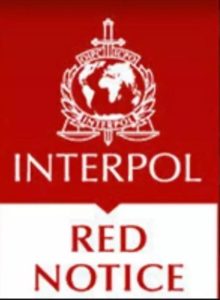Criminal matters govern tickets, misdemeanours and crimes and are intended to punish criminal offenders. It can take an international turn in two types of cases: first, when a domestic element includes international behaviour (international criminal law) and secondly when it punishes international crimes and crimes (the international criminal law).
International criminal law
International criminal law is mainly based on the extraneity of the protagonists. Two or more states can be represented with jurisdictions and jurisdictions of their own for all. In order to combat international offences, states must work together. This mutual aid is called international repressive assistance.
There are many international organisations responsible for combating international criminal offences: Interpol, Europol, OLAF, the European Committee for the Fight and Prevention of Torture and Inhuman Punishment or Treatment or Degrading Committees, Specialized UN Committees, etc.
Mr. THUAN Dit DIEUDONNÉ has developed a particular expertise in the european arrest warrant (EAA) or international arrest warrant and extradition.
Focus on INTERPOL

Interpol helps police forces in its member countries share vital crime information through its international records system.
Police may use the notices to alert law enforcement agencies in other countries of potential threats, or to request assistance in solving criminal cases. The most common notice is the Red Notice, a request for the location and arrest of a person wanted by a court or an international court for extradition. The legal basis of the red notice is the arrest warrant or judicial decision issued by the judicial authorities of the country concerned. In addition, Interpol is considered an official route for the transmission of requests for provisional arrest through a number of bilateral and multilateral extradition treaties such as the European Convention on Extradition, the Convention on Provisional Arrest the Economic Community of West African States (CEDEAO), or the standard extradition treaty developed by the United Nations.
Mr. THUAN Dit DIEUDONNÉ may have this red notice lifted in particular cases, following a special procedure provided for this purpose by the INTERPOL Files Commission. The Firm, competent in this matter where politics is mixed with the law, can give you the necessary information and, if possible, lift a red notice issued to you.
International assistance can also be done directly between states and thus take the form of extradition or an equivalent procedure such as the European Arrest Warrant.
Extradition is the surrender by a state (the required state) of an individual who is on his territory to another state (the requesting state) who seeks that individual either in order to try him for an offence he allegedly committed or in order to subject him to the his courts have already handed down against him. Similarly, the European Arrest Warrant is a simplified cross-border judicial procedure for the purpose of criminal prosecution or the execution of a custodial sentence or security measure. A warrant issued by a judicial authority of a European Union country is valid throughout the EU. Mr. Thuan will assist you in all these circumstances.
International criminal law
International criminal law includes many crimes or misdemeanours that are defined either by international custom or in international conventions. These crimes and misdemeanours include: high-seas piracy, also known as “maritime brigandage”, the slave trade, drug trafficking, illegal acts directed against the security of international civil aviation, terrorism, trafficking in obscene publications, violation of rules on the protection of cultural property in the event of armed conflict, etc.
The most well-known crimes, which are often considered by the states to be the most serious, are crimes of genocide, crimes against humanity and war crimes, plus the crime of aggression. These crimes are contained in the 1998 Rome Convention, which establishes the International Criminal Court in The Hague. This Court has the considerable advantage of allowing the prosecution of the rulers – heads of state, prime ministers, ministers, high-ranking figures – who, elsewhere, before any internal criminal court, would be released because of their criminal immunity.
Other international criminal courts exist:
- The Extraordinary Chambers of the Cambodian Courts (CETC) in Phnom Penh, which takes the form of a special Cambodian tribunal that receives international assistance through the United Nations Assistance to the Khmer Rouge Trials (UNAKRT).
- Similarly, the Special Tribunal for Lebanon (TSL) is an international tribunal set up to try those accused of carrying out the 14 February 2005 attack that killed 23 people, including former Lebanese Prime Minister Rafik Hariri and wounded many other people. Its headquarters are in the Netherlands in The Hague, the Tribunal employs Lebanese and international staff and judges people according to Lebanese criminal law.
- The Special Court for Kosovo is a court under Kosovo law, but whose premises have been established in The Hague, The Netherlands. The aim is to ensure the protection of witnesses and to prevent cases of corruption. These specialized chambers will be competent to shed light on the alleged war crimes of the Kosovar Liberation Army, the KLA, between 1999 and 2000. between 1 August 1999 and 31 December 2000. For these crimes, the court will have precedence over any other jurisdiction in Kosovo.
In all these situations, the firm THUAN Dit DIEUDONNÉ offers its expertise and experience.
